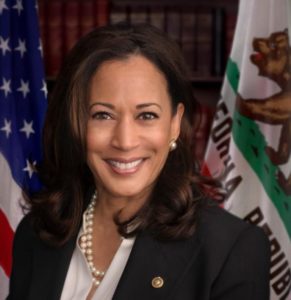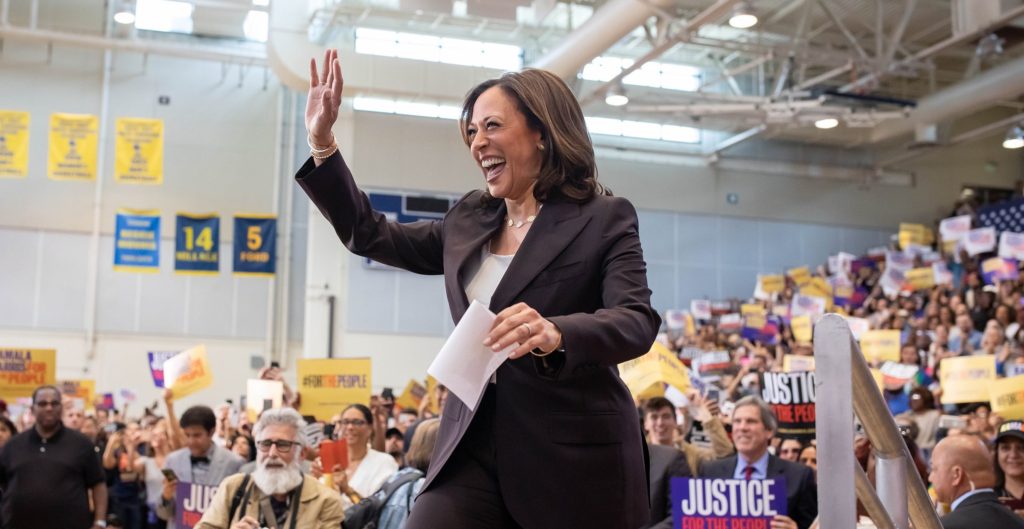Due to a non-functioning plugin, the FB Likes disappeared 🙁 – if you like the post you can re-start the Likes all over again!Have a brand-new Like button installed!
Kamala Harris Pulls out of the US Presidential Race
Did Indian-Americans Support her Enough – or not Enough?
[dropcap]T[/dropcap]he beginning had been just as exciting as the ending was disappointing. This week came the first big surprise of presidential politics — US Senator Kamala Harris announced that she is dropping out of the race.
“I’ve taken stock and looked at this from every angle, and over the last few days have come to one of the hardest decisions of my life,” she wrote to her supporters. “My campaign for president simply doesn’t have the financial resources we need to continue.”
“The end of Harris’ run, after she began with such high hopes, is another demonstration of just how brutally difficult it is to run for president,” wrote The Washington Post. “And hopes for her were awfully high. She seemed like a potentially great candidate: A strong résumé of positions at the local, state, and federal levels; a base in the country’s most populous state; evident charisma.”
“Senator Kamala Harris of California dropped out of the Democratic presidential race on Tuesday after months of low poll numbers and a series of missteps that crippled her campaign, a deflating comedown for a barrier-breaking candidate who was seeking to become the first black woman to win a major party’s presidential nomination,” the New York Times wrote.
The harsh realities of a national campaign were many – reaching out to a diverse melting pot population, raising funds and laying out issues – and the news cycle was full of possible reasons and every political pundit had a theory. But as Harris told her supporters, “I’m not a billionaire. I can’t fund my own campaign. And as the campaign has gone on, it’s become harder and harder to raise the money we need to compete. In good faith, I can’t tell you, my supporters and volunteers, that I have a path forward if I don’t believe I do.”
In Indian-American circles, there was a lot of surprise and regret too. When Kamala Harris had announced her bid, she had been everyone’s golden girl and the desi community had the delightful prospect of perhaps a US president named Kamala Devi Harris and whose mother was an immigrant from Chennai.
To read her newly released memoir The Truths We Hold was to really understand her Indian background and her connections to the community.
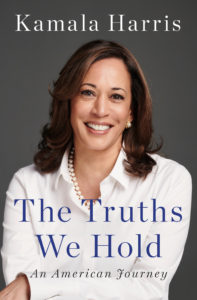
[dropcap]T[/dropcap]hroughout the pages, her mother Shyamala is a constant presence and Harris recalled, “My mother always said to me, “Kamala, you may be the first to do many things – make sure you’re not the last.”
For Indian-Americans there was a great sense of pride in her accomplishments as the first Indian-American, Asian American and African woman to be the Attorney General of California, and now the first senator of South Asian origin in the US Congress.
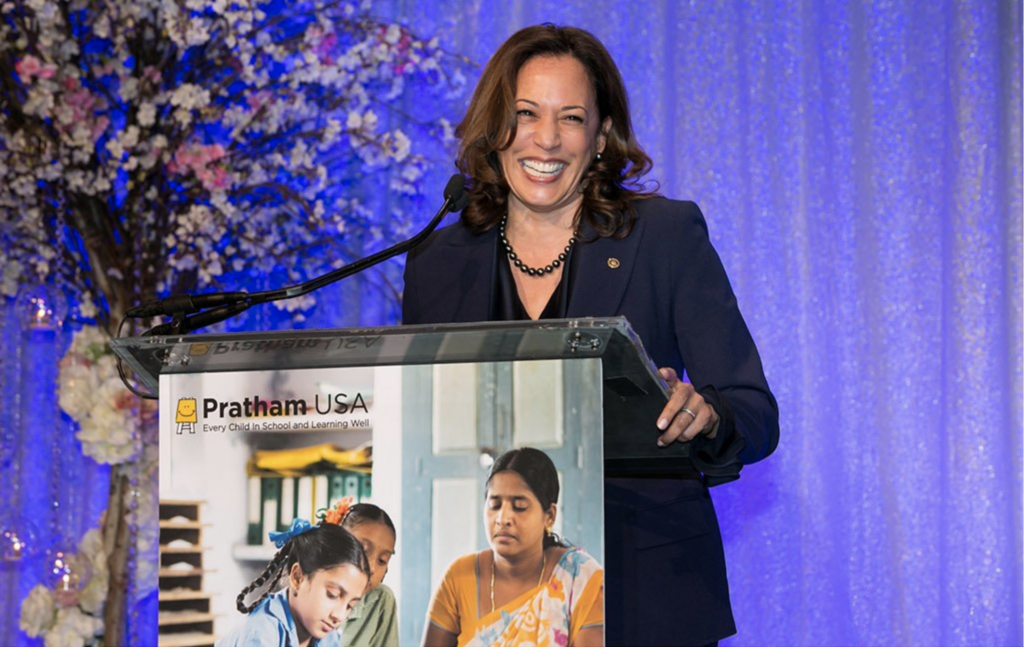
[dropcap]A[/dropcap]t New York’s Pratham Gala, in January 2019, Harris gave a star performance and a large power group of affluent Indian-Americans gave her a standing ovation. Younger Indian-Americans have been just as enamored: even as recently as last month a video of Kamala Harris making dosas with Mindy Kaling and embracing their inner South Indian went viral. A rapturous Kaling said over them chopping onions, “What can’t she do? She’s got my vote!”
Harris’ early debate performances also got high marks but so many different factors have led to the damp squib in December. It seems a shame that she qualified for the upcoming debate and is out before things heat up in Iowa.
India America Impact Fund had endorsed her for President, becoming the first Indian-American and Asian-American organisation to do so, observing that “In such a critically important election, one that will shape policy and politics for generations to come, Indian Americans can’t afford to stay on the sidelines.”
Asked for reaction on her pulling out of the presidential race, Deepak Raj, co-founder of India America Impact, noted, “We are proud of the Senator for all that she has already accomplished, representing the largest state in the Senate, and we congratulate her on a highly impactful fight for the highest office in our land.”
He points to her long demonstrated history of public service, “I’m confident that she will remain active in national politics and continue to work on behalf of all Americans. She, as an Indian American woman, is a strong role model for Indian-Americans looking to organise, lead, and run for office across the country.”
So did the community support Harris enough? Did her mixed heritage complicate things? One wonders if she got enough support from Indian Americans – she is a powerhouse from California but did Indian Americans across the country really get to know her? Perhaps this race was before its time.
The chatter on social media has been all over the place, from her Indian roots to her African connections, the messaging of her campaign and the issues.
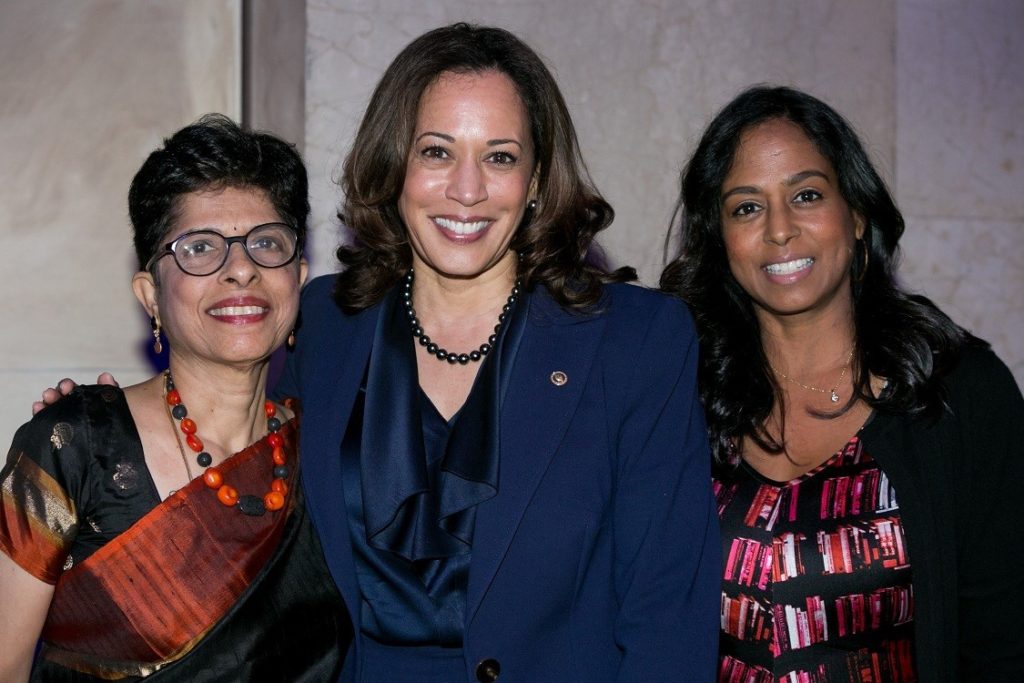
[dropcap]I[/dropcap]n a free-flying Facebook discussion initiated by media guru Sree Sreenivasan, Dheeraj Ashalatha noted, “Why do you even care about the race and skin color so much? We need good presidents who care about jobs , security and the well being of the nation!”
Suman Rudra said, “During primaries candidates need to campaign about being an American, just like Obama did. He didn’t stand up for any one minority but for all Americans who needed help.”
Still, diversity of voices is important and now Cory Booker remains the only minority candidate in a sea of white, from Biden to Buttigieg
John Laxmi, a SAJA board member, mused: “Issues matter. Harris will be better prepared and experienced after a full term as a senator and, perhaps, after serving in other high positions.”
Others from across the racial spectrum have noted the loss of a strong voice in the upcoming race. Michael Logan shared, “I’ve been canvassing and phone banking for her here in Iowa, and was going to lead precinct 23 for her. Now I’m back to Undecided. Kamala 2024.”
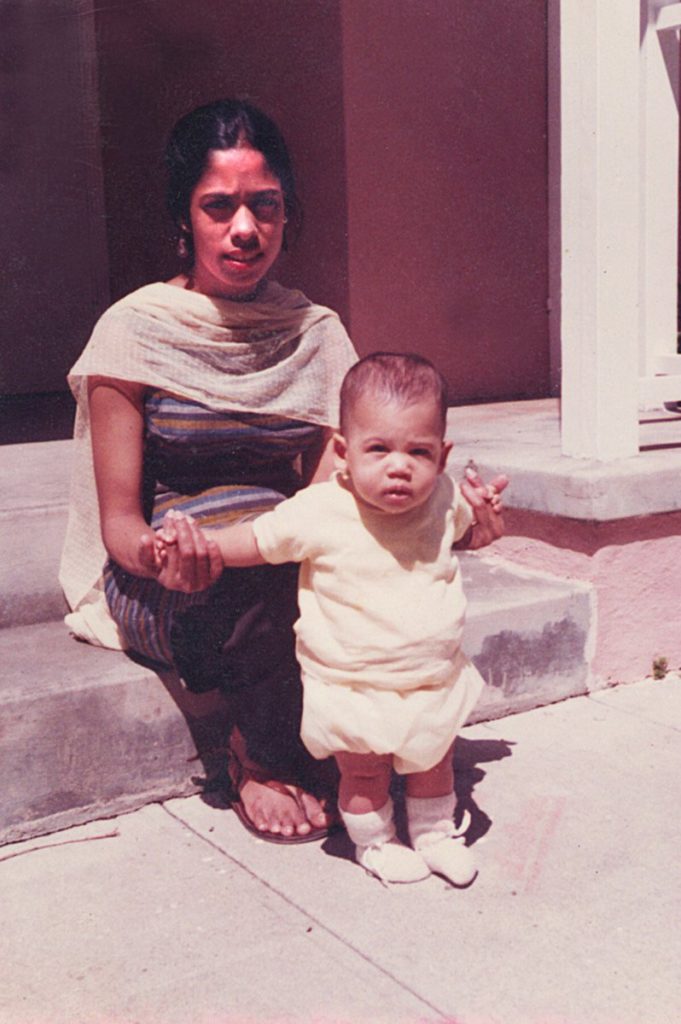
[dropcap]T[/dropcap]he hopes are high for Harris. As chef-writer Andrew Blackmore-Dobbyn predicts, “She is set to become a major power in the Senate when the majority flips. Also a top contender for Veep, Sec of State, or Atty General. All in all a terrific run!”
Courtney Kealy added another possibility into the FB chai, “She will likely dominate the Senate Impeachment trial.”
Indeed, as Harris said in exiting the race, “I want to be clear with you: I am still very much in this fight. And I will keep fighting every day for what this campaign has been about. Justice for the People. All the people.”
“Our campaign uniquely spoke to the experiences of Black women and people of colour – and their importance to the success and future of this party,” Harris wrote to her supporters. “And I believe our campaign showed every child in America — regardless of their colour or gender — that there are no limits to who can lead and hold positions of power in our country. In that way — this campaign has been so much bigger than me.”
Harris has many firsts to her credit, and one of them is creating a positive mirror-image for women of colour. Swati Bhise, director of the new independent film The Warrior Queen of Jhansi has been a supporter of Harris. Asked for her reaction she said, “Kamala Harris will continue to be the change the country needs and I’m confident the time will come when America will support a woman of color as the leader of the country.”
[dropcap]C[/dropcap]ampaign merchandise sometimes tells unexpected, unfinished stories. We heard about Harris exiting the race on Tuesday and yet on Cyber Monday I’d been receiving emails from the Kamala Harris campaign about Kamala hats and teeshirts, tote bags with Kamala Harris – We the People splashed across them and even a winning black shirt with the exciting possibility: ‘We, the People – She, the President.’
Will these become swag, curiosities, discards of a presidential race – or a promising bellwether for the future? Kamala Devi Harris is only 55 and her story certainly isn’t over – it has barely begun.
(This article was published in my weekly column ‘India in America’ in CNBCTV18.com
Related Article:
